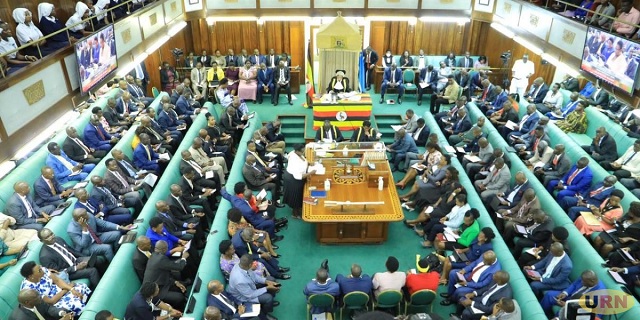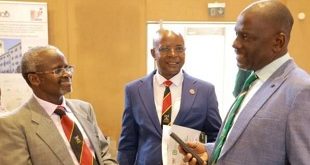
Kampala, Uganda | THE INDEPENDENT | The Deputy of Parliament, Thomas Tayebwa tasked the Ministry of Works and Transport to present a comprehensive report on the state of national road networks within 14 days to enable the House to debate it and make necessary approvals to fix existing gaps.
It follows an outcry from several Members of Parliament during a plenary sitting on Tuesday in which they cited a lack of will from the government and unnecessary procurement delays in the road infrastructure development projects that affect the implementation of national strategic plans.
Tayebwa decried that legislators throng his office daily seeking space on the order paper to raise issues relating to road infrastructure breakdown in their constituencies which the House must debate and direct the Executive on immediate interventions.
Citing the Goli – Paidha – Zombo – Warr – Vurra Road (95Km) Road and Arua Lia Road (15Km) which were listed in 2018 in the National Development – NDP III for upgrading, Esther Afoyochan, the Zombo District Woman Representative expressed dismay that works have never started.
Yet, according to Afoyochan, the Works Ministry has already done the feasibility study including route and pavement options, environmental and social-economic assessment, land acquisition, detailed design, and resettlement action plan among others on the 110 km road project.
Estimated to cost over 3.8 billion Shillings, Nebbi-Goli-Paidha-Zombo-Warr-Vurra Road is aimed at boosting agriculture to improve the livelihoods of the community by connecting Uganda to the neighboring Democratic Republic of Congo.
Rising on the same road project, Lawrence Biyika Songa, the Ora County legislator implored the Government through the Ministry for Finance, Planning, and Economic Development to first track available loan opportunities to develop the road because it has a higher return on investment.
In response, Fred Byamukama, the Bugangaizi West Member of Parliament doubles as the State Minister for Works and Transport explained that the initiation of the road upgrading works has commenced due to a lack of funds, adding the government is soliciting a potential financier for the project.
Byamukama’s response fell on deaf ears on the lawmakers. Okoro County MP, Gabriel Okumu observed that as a result of inaccessibility caused by the poor road network, the government is losing billions of revenue from coffee exportation to the Eastern DR Congo.
The debate prompted Erute County South MP, Jonathan Odur to rise on a procedural matter noting that road infrastructure breakdown is a countrywide concern for all Ugandans and urged the Speaker to direct Works Ministers to present to the House a comprehensive report on national roads for debate.
Data available from the Ministry of Works and Transport indicates that Uganda has a total road network of about 159,366km comprising 20,854km (13%) of national roads; 38,603km (24%) of district roads; 19,959km (13%) of urban roads, and 79,947km (50%) community access roads.
The national roads link border posts, airports, and ports to each other as well as to the capital city. District roads link district headquarters to the national road network and sub-county administrative centres. Urban roads are within the boundaries of urban areas, while community access roads are those within villages that link communities and provide access to administrative, social, and economic services.
At independence in 1962, Uganda had only 844km of tarmac roads compared to the current 5,500km. Uganda’s long-term target as enshrined in Vision 2040 — is to achieve an average paved road density of 100km per 1,000 sq. km by the year 2040.
*******
URN
 The Independent Uganda: You get the Truth we Pay the Price
The Independent Uganda: You get the Truth we Pay the Price


